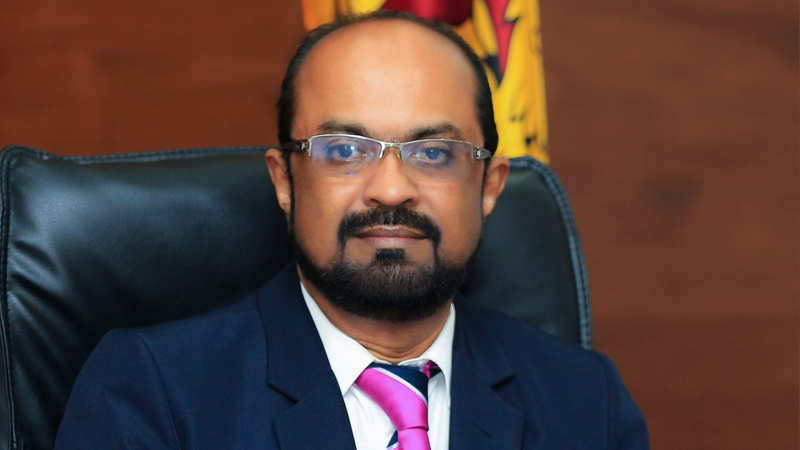Minister of Energy Kumara Jayakody said the battery storage issue which gripped the solar energy sector and caused problems for the grid stabilisation will be solved soon following discussions with private entities.
“We have already commenced a discussion with those who are ready to invest and bring in the storage technology to the country and when the technology is in place, the issue about peak and off peak time power supply to the national grid would not arise,” the Minister said. He was addressing the media at the International Solar Alliance (ISA) seventh regional committee meeting (RCM) for the Asia Pacific region in Colombo last week.
Outlining other steps taken to address the solar energy sector, the Minister said, the commissioning of the 160MW battery storage system by the CEB, the 600MW pump storage at Maoya, the introduction of Electric Vehicles and opening small scale solar power projects will ease the problem of the solar power sector.
Today, solar power meets around 13 percent of the total energy need of the country.
“The Government plans to develop 2,000MW of renewable energy within the first five years of its tenure with a focus on transitioning to 70 percent renewable energy sources by 2030”, the Minister said while being upbeat about reaching the goal within around four years.
When asked about the withdrawal of Adani Group from wind power project in Sri Lanka and its impact on presenting the country for future investments in the renewable energy sector, the Minister rebuffed accusations by the Opposition and interested parties as bunkum and added that the Government maintains cordial relations with the Indian energy company with whom the Government will work in the future.
While stressing the importance of the role played by ISO to support small island nations to meet their energy needs through renewable sources, the Minister said that regional partnerships will help share technology, know-how and funding for energy sustainability.
The RCM focuses on expanding regional platforms, de-risking solar investments, and adopting technologies such as green hydrogen and energy storage. It also includes discussions on cross-border solar trade and the operationalisation of a solar marketplace for Small Island Developing States (SIDS). Director General, ISA, Ashish Khanna said, “The Asia-Pacific Region is at the heart of the global energy transition. The Regional Committee Meeting in Colombo is an opportunity to develop practical, investment-ready solutions with the potential to scale up across countries and technologies.
The RCM will also include the signing of Country Partnership Frameworks with select countries and Partnership Agreements with regional and international organisations to further strengthen ISA’s solar initiatives and expand collaborative efforts across the Asia-Pacific region. The meeting will also feature discussions on the setting up of new regional STAR centres aimed at enhancing institutional capacity, building technical expertise, and supporting the region’s long-term solar energy goals.








